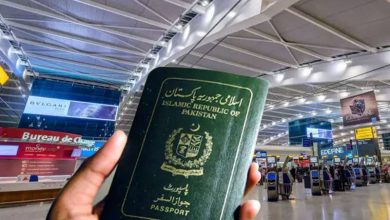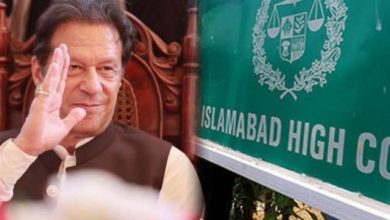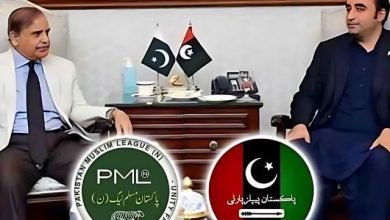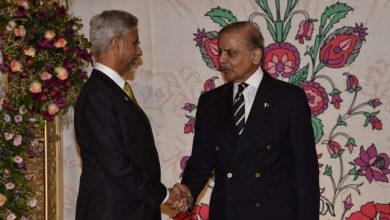Tax office strikes against FBR overhaul
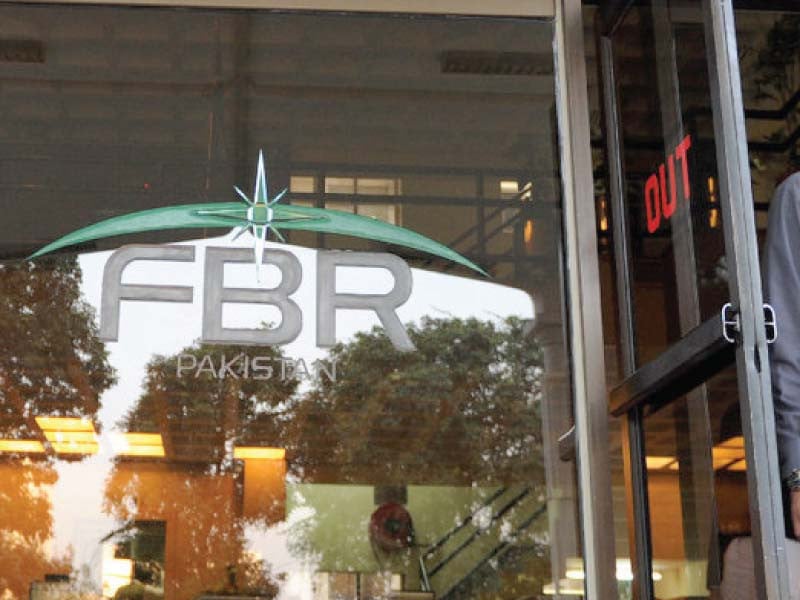
Days after warning Finance Minister Dr Shamshad Akhtar to slow down revenue collection in protest against the restructuring of the tax machinery, Pakistan’s single largest field tax office observed a strike.
The Large Tax Office in Karachi cast the first stone and went on a strike against the interim government’s decision to abolish the Federal Board of Revenue (FBR) and set up two new boards comprising two separate services of Customs and Inland Revenue.
Sources told The Express Tribune that the FBR’s senior management had twice warned the interim finance minister that there was resentment among the field offices against the restructuring of the FBR.
“The officers of the Inland Revenue Service observed the strike on their own without any encouragement or endorsement by the management,” said Sajidullah Siddiqi, Chief Commissioner of the LTO-Karachi while confirming the development.
The LTO Karachi had pooled Rs320 billion in December, over one-fifth of the total tax collection across the country.
The Express Tribune reported last week that the Special Investment Facilitation Council (SIFC) approved the restructuring of Pakistan’s tax machinery. The council, led by Prime Minister Anwaarul Haq Kakar, endorsed the division of the FBR into two entities, removing its authority to formulate tax policies.
The SIFC has allowed a one-month implementation period for the new plan.
The spokesperson for the finance minister did not reply to a question about whether she had been warned about the possibility of a strike by the FBR officers. The spokesperson also did not respond to whether the finance minister was going to push ahead with the restructuring plan or slow it down now.
The caretaker government has begun the restructuring process without taking all stakeholders into confidence, and the country’s largest tax-collecting office has tried to convey its reservations through this token strike, said an officer of the Inland Revenue who participated in the strike on condition of anonymity.
The Inland Revenue Service, which controls the majority of resources, makes policies, and is also the largest workforce of the FBR, is against the FBR restructuring. The Customs Service Group is in favour of seeking a divorce from its largest partner. The Custom Group believes that only the interim government can break the shackles, having little faith in the next elected government due to a nexus between politicians and the bureaucracy.
The achievement of the annual Rs9.415 trillion tax collection target is one of the key cornerstones of the Pakistan-International Monetary Fund programme.
The finance minister, who visited the FBR headquarters this week, also had to take tough questions over the restructuring efforts.
Despite the SIFC’s decision, there is a snail-pace movement on the implementation of the decision. As of Friday evening, the FBR had not sent a summary for the federal cabinet to seek its endorsement of the SIFC decision.
Until the federal cabinet formally endorses the SIFC decision, the implementation committee cannot be formed.
The scheme of arrangement involves approval by the Cabinet to introduce changes in laws and Rules of Business of 1973.
Read SIFC okays major overhaul for FBR
The SIFC had decided that the restructuring would be implemented within the existing allocated resources of the FBR.
An Asset Distribution Committee will also be set up to divide the FBR’s assets between Customs and the Inland Revenue Service. It was also decided that no new posts would be created.
As per the approved plan, the tax policy will be handed over to the FBR Policy Office. The Tax Policy Office will be established in the Revenue and Tax Policy Division.
A committee, chaired by the finance minister and having finance secretary and the incumbent FBR chairman, would ensure support for the restructuring and concurrence to establish any position needed.
The SIFC had been informed that the purpose of the FBR’s restructuring was to enhance revenue collection, strengthen governance and accountability, separation of policy function to ensure sustainable economic growth and transparency and introducing better oversight mechanisms with steeper accountability.
The Tax Policy board will be headed by the finance minister and will include experts in taxation, tax policy division, and tax administration, economists, and industry experts with no conflict of interest.
The revenue division mandate will include political coordination across federal and provincial tax matters. It will work to promote revenue and tax policy coordination, harmonise valuation modalities. The revenue division will also be responsible for integrity policy frameworks, strengthen the tax appellate bodies and modernise the legal and regulatory framework.
Functions of the two new Boards
According to the approved plan, both the oversight Boards will be headed by the Secretary of the Division. The government would appoint the director generals from the Inland Revenue and Custom Groups. The director generals will be the heads of the respective establishments for a fixed tenure. They will be accountable to the respective Oversight Boards and will act as Principal Accounting Officers for their respective administrations.
Each board would comprise ten members – four from the public and six from the private sectors.
The Custom Oversight Board would comprise the Secretary Revenue Division as its chairman. The Secretary Finance Division, Secretary Commerce Division, and the Director General Customs will be the government members. Among the independent members will be an economist, an international trade and WTO expert, an international maritime and logistics expert, and a security and border controls expert, an e-commerce expert and a representative of Trade & Industry.
Similarly, the Inland Board would also be headed by the Secretary Revenue Division as its chairman. The Secretary Finance Division, Secretary Commerce Division, and director general of Inland Revenue would be the public sector members. The independent members would include an international tax law expert, an economist, income tax experts, sales tax and excise expert, a technology expert, and a representative of trade and industry and DG IR.

